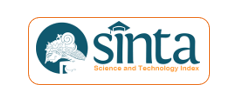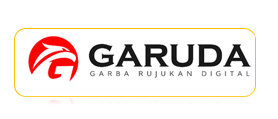Strategi Argumentasi dalam Pembelajaran Sejarah
Abstract
Abstrak: Kegiatan argumentasi dapat dimanfaatkan untuk menganalisis teks sejarah. Kegiatan argumentasi pada prinsipnya menuntut siswa untuk mencari bukti-bukti yang tepat untuk mendukung klaim. Siswa memilah, memilih dan mengklasifikasi atau dengan kata lain siswa melakukan analisis. Permasalahan yang diajukan untuk dalam penelitian ini adalah bagaimanakah strategi argumentasi dilaksanakan dalam pembelajaran Kompetensi Dasar 3.11 pada Kurikulum 2013 “Menganalisis perjuangan Bangsa Indonesia dalam upaya mempertahankan kemerdekaan dari ancaman Sekutu dan Belanda” Penelitian ini menggunakan rancangan lesson study. Siklus lesson study ini meliputi plan, do dan See. Open class untuk lesson study ini dilaksanakan di kelas XI-IPA2 di SMA Negeri 1 Sumberpucung Kabupaten Malang. Siswa diajak melakukan argumentasi sebagai representasi analisis teks sejarah. Pengajaran pada siklus I dilakukan pada tanggal 9 April 2015 dan siklus II pada tanggal 16 April 2015. Pada siklus I strategi pembelajaran argumentasi dilaksanakan dengan kurang maksimal. Seharusnya hasil pekerjaan siswa berupa argumen yang berisi klaim dan bukti-bukti pendukung. Pada siklus II ini, setelah ada perbaikan, strategi pembelajaran argumentasi bisa dilaksanakan secara maksimal. Perbaikannya berkenaan dengan penulisan klam di papan tulis. Guru sendiri menuliskan klaim di papan tulis.
Kata-kata kunci: Lesson study, strategi pembelajaran argumentasi, siklus.
Abstract: Argumentation activities can be used to analyze historical text. The argumentation activities in principle require students to look for appropriate evidence to support the claim. Students sorting, selecting and classifying or in other words the students do the analysis. The problem proposed for this research is how the argument strategy is implemented in learning Basic Competence 3.11 in Curriculum 2013 "Analyzing the struggle of the Indonesian Nation in the effort to defend the independence from Allied and Dutch threats" This research uses lesson study design. This lesson study cycle includes plan, do and See. Open class for lesson study was conducted in class XI-IPA2 in SMA Negeri 1 Sumberpucung, Malang. Students are invited to argue as a representation of historical text analysis. Teaching on the first cycle was conducted on April 9, 2015 and cycle II on April 16, 2015. In cycle I strategy lesson argumentation implemented with less maximum. The student's work should be an argument that contains the claim and supporting evidence. In this second cycle, after the improvement, the argumentation learning strategy can be implemented maximally. Improvements related to the writing of klam on the board. Teacher himself writes a claim on the board.
Keywords: lesson study, argumentation teaching strategy, cycles
Full Text:
PDF (Bahasa Indonesia)References
Anderson, L. W. & Krathwohl, D. R. 2001. A Taxonomy for Learning, Teaching and Assessing: a Revision of Bloom’s Taxonomy of Educational Objectives. New York: Addison Wesley Longman, Inc.
Berland, L. K. & McNeil, K. L. 2010. A learning progression for scientific argumenation: understanding student work and designing supportive instructional contexts. Science Education, 94 (5),: 765-793.
Cerbin, W. & Kopp, B. 2006. Lesson study as a model for building pedagogical knowledge and improving teaching. International Journal of Teaching and Learning in Higher Education, 18 (3), 250-257.
Eskin, H. & Ogan-Bekiroglu, F. 2013. Argumentation as a strategy for conceptual learning of dynamics. Research of Science Education, 43: 1939-1956.
Kuhn, D. & Udell, W. 2003. The development of argumen skills. Child Development, 74 (5), 1245-1260.
Leitao, S. 2000. The potential of argument in knowledge building. Human Development, 43 (6): 332-360.
Lewis, C. 2002. Does lesson study have a future in the United States? Nagoya Journal of Education and Human Development, 1, 1-23.
Lewis, C. & Tsuchida, I. 1998. A lesson like a swftly flowing river: how research lessons improve Japanese education. American Educator, 22 (4), 12-17; 50-52.
Lewis, C., Perry, R., & Murata, A. 2006. How should research contribute to instructional improvement? The case of lesson study. Educational Researcher, 35 (3), 3-14.
Lichtman, A. J. & French, V. 1978.Historians and the living past: the theory and practice of historical study. Arlington Heights, Ill: Harlan Davidson, Inc.
Littleton, K., Wood, C &Staarman, J. K. 2008.Handbook of educational psychology: new perspectives on learning and teaching. Elsevier Press.
Munford, D., & Zembal-Saul, C. 2002. Learning science trough argumentation: prospective teachers’ experience in an innovative science course. ERIC ED 465520 - SE 066110.
Post, G., & Varoz, S. (2008). Supporting teacher learning: lesson study groups with prospective and practicing teachers. Teaching Children Mathematics, 14 (8), 472-478.
Stepanek, J., Appel, G., Leong, M., Mangan, M. T., Mitchell, M. 2006. Leading lesson study: a practical guide for teachers and facilitators. Thousand Oaks, CA: Corwin Press.
Takahashi, A. & Yoshida, M. 2004. Ideas for establishing lesson study communities. Teaching Children Mathematics, 10 (9), 436-443.
Van Drie, J. & van Boxtel, C. 2008. Historical reasoning: towards a framework for analyzing students’ reasoning about the past. Educational Psychology Review, 20 (2), 87-110.
Verheij, B. 2005. Evaluating argumens based on Toulmin’s scheme. Argumenation, 19, 347 – 371.
Wiley, J. & Voss, J. F. 1999. Constructing argumens from multiple sources: tasks that promote understanding and not just memory for text. Journal of Educational Psychology, 91(2), 301-311.
Refbacks
- There are currently no refbacks.
Copyright (c) 2017 Susanto Yunus Alfian
Editorial office:
History Department, Faculty of Social Science,
Universitas Negeri Malang
Jl. Semarang No.5 Kota Malang 65145,
Phone. (0341) 551312,
email: jsb.journal@um.ac.id
Website: http://journal2.um.ac.id/index.php/sejarah-dan-budaya
P-ISSN 1979-9993
E-ISSN 2503-1147

This work is licensed under a CC BY SA 4.0.










